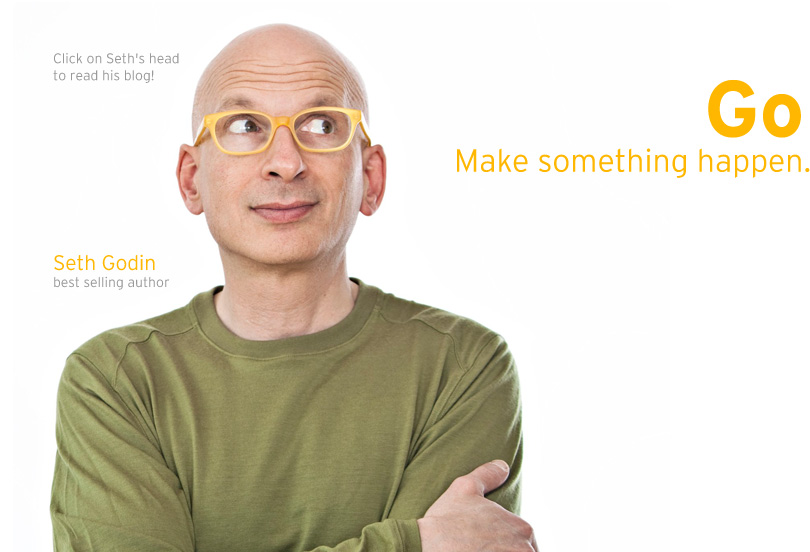If you aren’t familiar with Seth Godin.
Type the word “Seth” into Google. His blog is the first result, ranking above “celebrity famous” Seth Rogen. Seth G is the founder of Yoyodyne and Squidoo and author of 18 books. His latest release is an audio book called Leap First.
I’d never heard of Seth until I heard him speak at the Work Revolution Summit in 2013. That talk encouraged using fear as fuel. He used a personal example. Seth is a regular public speaker. He chooses to give a different talk for every speaking engagement; a terrifying commitment. But – as he pointed out – it forces him to keep reinventing his talks and experimenting. He’s a better speaker for it. I found him to be an inspiration.
Seth’s gift is ideas.
Not simply the production of ideas; that’s easy. Seth produces ideas that are simple and sticky. He packages his ideas into stories that are inspiring, memorable and compel you to put them into action.
Leap First is an audio recording of a recent talk. This story is about finding the courage to make art. Not art in the traditional sense. Art meaning to create something that is meaningful to yourself and others. The story starts with money.
Money is simply an idea that we have attached importance to. Let go of the idea and you’re free to leap.

I got the sense that anecdote was auto-biographical.
There’s a wonderful duality here. Be ambitious. Don’t be ambitious.
Leap First is 2 hours well spent. Even if you’re not ready to go out on your own and leap into the “creation economy” yet, the message here applies to whatever you do today. What are the projects and initiatives that you aren’t starting? Maybe Seth can give you the inspiration to leap.






